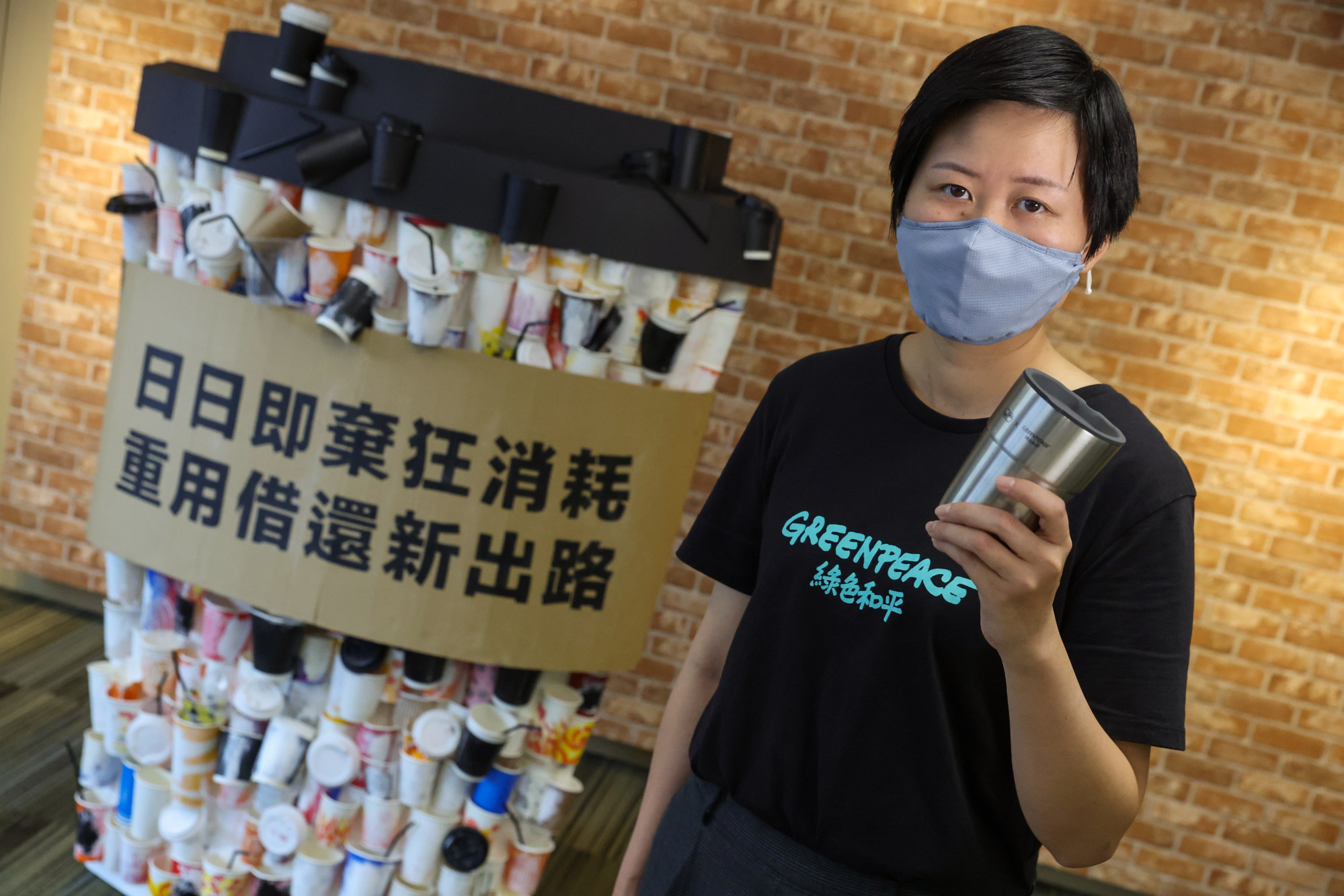
Hong Kong to delay first phase of ban on plastic tableware at restaurants, as activists lament official ‘habitual procrastination’
- Environment and Ecology Bureau had planned to start ban late this year or at beginning of next one at earliest, but it’s now pushed back to second quarter of 2024
- ‘The lack of a certain date gives authorities an excuse to procrastinate, which in turn becomes an excuse for businesses and the public to do so as well,’ activist says
Hong Kong environmental authorities have said they will postpone a ban on the sale and distribution of disposable plastic tableware at restaurants, leading green groups to express disappointment over the government’s “habitual procrastination”.
The Environment and Ecology Bureau had earlier said it aimed to start the ban late this year or at the beginning of the next one “at the earliest”, but a spokeswoman on Thursday revealed the regulation would instead be rolled out in the second quarter of 2024.

“The implementation time of the first stage of the regulation depends on the time when the Legislative Council passes the bill,” she said, referring to the legal amendment that was scheduled for its second and third readings next Wednesday in the legislature, its first meeting after the summer recess.
“If it is passed on October 18, the first phase of control will be carried out in the second quarter of next year, with the specific implementation date to be announced later.”
The Council for Sustainable Development in April last year recommended a progressive ban on the use, sale and free distribution of single-use plastic products over a three-year period.
This March, the government introduced a bill calling for a two-phase ban based on suggestions made by environmental affairs advisers.
Phase one will include a ban on the sale and distribution of disposable plastic tableware, such as expanded polystyrene containers, straws, stirrers and cutlery, as well as objects that have non-plastic alternatives, such as cotton buds, umbrella covers and glow sticks.
Hotels and guest houses will also be barred from providing disposable toiletries and in-room plastic-bottled water for free after the first phase takes effect.
Phase two will outlaw the sale and distribution of plastic food receptacles, as well as the free distribution of items such as plastic-stemmed dental floss and earplugs.
In March, a bureau spokesman said the first-phase regulation would likely take effect six months after the passage of the amendment, adding the second phase would depend on the “availability and affordability” of the non-plastic alternatives.
First stage of Hong Kong single-use plastics ban brought forward 2 years to 2023
But on Thursday, the bureau spokeswoman said a six-month preparation period was needed after the bill was passed, and authorities would carry out publicity and education work in the meantime to “let all sectors of society understand” the regulation.
“We are tentatively planning to implement phase two in 2025,” she added.
Greenpeace campaigner Leanne Tam Wing-lam said the government always avoided giving specific commencement dates when planning to introduce new environmental policies.
The government in July announced the postponement of a long-awaited waste-charging scheme to April 1 next year instead of introducing it at the end of this year as initially suggested.
“The lack of a certain date gives authorities an excuse to procrastinate, which in turn becomes an excuse for businesses and the public to do so as well. It has become the government’s habit,” Tam said.
“The government has to offer the public a clearer timetable that allows people to monitor the progress and raise concrete concerns and feedback. Without one, no one would care.”
Consultation opens on new proposal to ban single-use plastics in Hong Kong
Edwin Lau Che-feng, executive director of The Green Earth, said that although he felt disappointed about the delay, he was not surprised.
“The government has a record of delaying things, which is detrimental to the public sentiment about its environmental policies,” he said. “Some of the materials should be banned as early as possible, such as expanded polystyrene. It is one of the most problematic plastic products because it disintegrates more easily than other materials such as polypropylene and poses greater harm to nature.”
